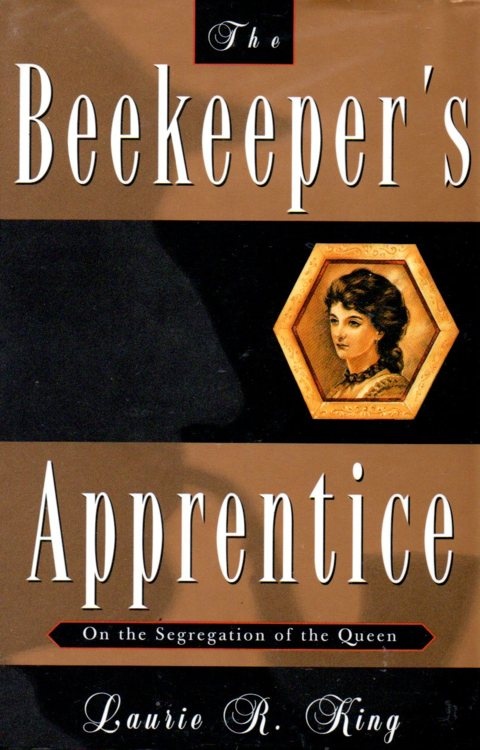A generous 2 stars. Really more like 1.5/5 stars, but I didn't feel like I could mark only 1 star because it wasn't remotely as bad as The Bourne Identity, which is my benchmark for badness.
I was very excited to finally get around to this book, which has been on my reading list for awhile after recommendations from several people whose book recs I pay attention to. Alas, we cannot always agree about books (but such is the spice of life, right?).
Pro: I finished it...
Con: ...but mostly because I was writing the review in my head as I read and I wanted to be able to fully capture how much I disliked this book.
Pro: Mary Russell is a great opportunity to explore what women are capable of, even when engulfed in a culture of misogyny...
Con: ... but she is, essentially, a surrogate Holmes (i.e. she may as well be a man). Similarities: tall, thin, egotistical, superior, incredibly skilled at anything you could possibly require of her in any circumstance (disguise, improv acting, foreign languages, cricket, climbing trees, chess, decryption, running a farm, etc). And all at the tender age of 15 after a childhood which included almost none of those things. Add in a tragic past, a wealthy intercontinental upbringing, an Oxford education, easy friendships despite being superior and standoffish... not just a would-be Holmes, but a Mary Sue to boot. Ugh.
Pro: Female villain! See above re. Mary Russell...
Con: ... except she's also just a stand-in for a man! In this case, Moriarty, Holmes's arch-nemesis. And she is literally the surrogate Moriarty: not only is she a mathematician who oversees a vast criminal organization and is overly fixated on Holmes; she is Moriarty's daughter and all this is essentially to avenge Moriarty's death.
Pro: I like Watson, Mrs. Hudson, and Mycroft...
Con 1: ...but they had very small roles, and...
Con 2: ...Mary and Sherlock are giant assholes to Watson. He's written as slow, obtuse, and a bad actor; Mary especially is clear that she finds him stupid, and says so to his face. But because Watson is written as an idiot, he just smiles and loves her anyway. Mary's big complaint about Watson is that he completely adores and idolizes Holmes, and she points it out to the reader specifically to contrast herself with Watson... odd, because she also adores and idolizes Holmes.
Pro: Once Mary finally figured out who the villain was, I started to feel a sense of urgency. I cared. I wanted to know how they resolved the case...
Con: ...except there's 142 pages of book before the case is even introduced, and an additional 127 pages before she figures out who the villain is. So, of a 304 page book, I felt appropriately engaged for 35 whole pages.
More cons:
1. Nothing happens while Mary is "in training" with Sherlock. What are all those pages for?!? A lengthy overview of someone else's educational process (and then we played chess, and then we looked at blood under a microscope, and then we drank tea, and then we talked about bees...) is exceedingly dull but more importantly it just doesn't matter.
2. Tendency to tell, not show.
3. What's with the little excursion to Palestine in the middle of their big case? I get that they needed to get out of town. But nothing they did there had anything to do with the case and had no bearing on the rest of the story. This whole section doesn't matter.
4. The Palestine episode makes clear that Mary is Jewish and, apropos of nothing, that her heritage has always been of great significance to her personally. But this facet of her personality is completely ignored both before and after Palestine. It comes out of nowhere and in the end it still doesn't matter.
5. Shit like this: "I looked at his honest face and told him what would have been the truth, had I been telling the truth." Do you actually know what truth and lies are?
6. I hated the author's conceit that she didn't actually write this book but rather found the "true" story in a trunk that was delivered anonymously to her. Why is this even here? What does it add? And then the one of the reader's guide questions at the end asks how we thought it affected the reading experience to discover that King wasn't telling the truth in the introduction. Attention, Laurie King and reader's guide question writers: Readers are not idiots.




